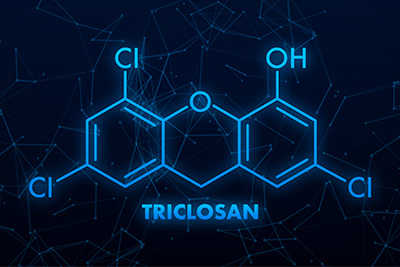
Some manufacturers are turning away from using Triclosan (an antimicrobial ingredient commonly found in soaps, toothpastes and other household products) over health concerns that this ingredient may be linked to an increase in cancer cells to those exposed. As turns out, these manufacturers’ health concerns may be justified; Triclosan is an endocrine-disrupting chemical (“EDC”) capable of causing adverse changes in hormones in those exposed.
Researchers have been more involved with investigating the magnitude by which EDCs may spur cancer cell growth, given how ubiquitous EDCs have become in common consumer products (and consequently, in the environment and our bodies). Research has focused primarily on two EDCs: Triclosan, an antimicrobial ingredient found in soaps, cosmetics and cutting boards; and Octylphenol, an ingredient commonly used in paints, pesticides and plastics.
In recent laboratory tests performed on human breast cancer cells, and on special immune deficient mice with tissue grafts, scientists found that Triclosan interfered with genes involved with breast cancer cell growth, thereby resulting in increased cancer cells.
A study published in the American Chemical Society’s Chemical Research in Toxicology also found that mice exposed to Triclosan had larger and denser breast cancer tumors than the control group. The study authors warn that “these results suggest that (Triclosan) may promote breast cancer progression” and ultimately that “exposure to EDCs may significantly increase the risk of breast cancer development and adversely affect human health.”
To find out more about optimizing your hormones, detoxification, and how to best protect yourself from the adverse effects of EDCs, contact The Anti-Aging Center at Make You Well today!
Sources: Hye-Rim Lee, Kyung-A Hwang, Ki-Hoan Nam, Hyoung-Chin Kim, Kyung-Chul Choi. “Progression of Breast Cancer Cells Was Enhanced by Endocrine-Disrupting Chemicals, Triclosan and Octylphenol, via an Estrogen Receptor-Dependent Signaling Pathway in Cellular and Mouse Xenograft Models.” Chem. Res. Toxicol., 2014, 27 (5), pp 834–842.